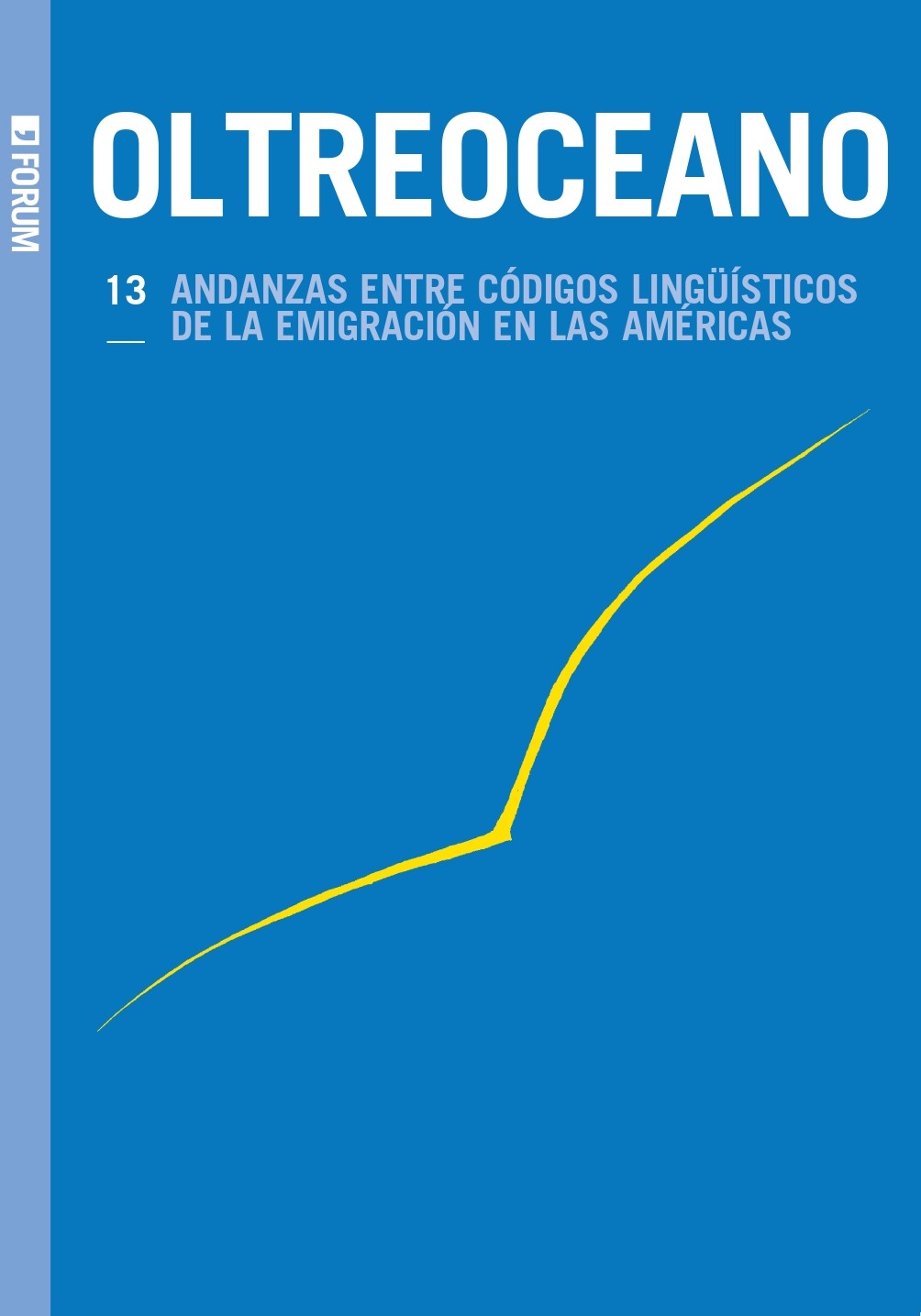Corazón Desfasado: los favores de una santa para armar y desarmar
Keywords:
religiosidad popular, migrantes, integraciónAbstract
En el marco de la religiosidad popular, vivida entre las comunidades migrantes latinoamericanas, las acciones de Helena Martín Franco se nos presentan como un juego de representaciones que visibiliza la tensión entre las expectativas de los migrantes y las exigencias para alcanzar una efectiva integración a la sociedad de acogida. Con el fin de ilustrar estas disonancias, los performances de la artista se centran en la figura la una santa popular –Corazón Desfasado– altamente estereotipada y arraigada a la sociedad de consumo de la que es producto. En las apariciones de esta figura en el ámbito público como el ciberespacio, el público le pide favores, rescribiendo sus propias oraciones multilingües.
To Arm and Disarm: The Favors of Saint Corazón Desfasado
Within the context of popular religiosity experienced amongst the Latin American migrant communities, the actions of Helena Martín Franco show us a game of representations that testify to migrants’ expectations and their need to integrate effectively the host society. In order to illustrate the tension between these two feelings, the artist’s performances center on the figure of Corazón Desfasado, a popular saint rooted in the consumer society. This highly stereotyped religious figure has taken different aspects, appearing in the public sphere as well as in cyberspace, and people have been asking her for favours, writing and rewriting their own multilingual prayers.
Corazón Desfasado: I favori di una santa per fare e disfare
Nel contesto della religiosità popolare, vissuta tra le comunità migranti latino-americane, le azioni di Helena Martín Franco sono presentate come un gioco di rappresentazioni che rendono visibile la tensione tra le aspettative dei migranti e le esigenze di raggiungere un’effettiva integrazione nella società d’accoglienza. Al fine di illustrare la dissonanza tra i due aspetti, le performances dell’artista colombiano-canadese si centrano sulla figura di una santa popolare − Corazón Desfasado / Coeur Déraciné –, altamente stereotipata e radicata nella società dei consumi, di cui ne è prodotto. Durante le apparizioni e le trasfigurazioni di questa figura religiosa, sia nella sfera pubblica sia nel cyberspazio, il pubblico chiede favori scrivendo e riscrivendo le sue preghiere in multilingue.
Downloads
References
Alberca, M. (2007): El pacto ambiguo. De la novela autobiográfica a la autoficción. Madrid: Biblioteca Nueva.
Arias, S. (2010): Rethinking space: an outsider’s view of the spatial turn. GeoJurnal, 75, pp. 29-41.
Beaudoin Duquette, A. (2015): Propraganda migratoria canadiense y arte latinoamericano en Montreal: un contrapunteo disonante. Tesis de doctorado en Estudios Latinoamericanos. Programa de Posgrado en Estudios Latinoamericanos. Universidad Nacional Autónoma de México. Inédita.
Caro, F. (2016): Biografía. Recuperado de http://frittacaro.helenamartinfranco.com/es/
Desfasado.net (2016): Corazón Desfasado. Recuperado de http://desfasado.net/?lang=es/
Desfasado.net (2016): Mensaje de redención. Recuperado de http://desfasado.net/message-de-redemption/?lang=es
Franco, H. (2016): Une Femme Éléphant. Recuperado de http://fe.helenamartinfranco.com
Galindo, D. (2011): Latin America’s Epistemic Break: Towards a Decolonial Aesthetics. Tesis MA in Art & Politics. Goldsmiths University of London. Inédita.
Giorgi, G. (2009): Cuerpo. In M. Szurmuk & R. McKee Irwin (Eds.), Diccionario de estudios culturales y latinoamericanos (pp. 67-71). México: Siglo XXI, Instituto Mora.
Martín F. & Martín, H. (2016). Recuperado de http://www.helenamartinfranco.com
Molero de la Iglesia, A. (2000): La autoficción en España: Jorge Semprún, Carlos Barral, Juan Goytisolo, Enriqueta Antolín y Antonio Muñoz Molina. Bern: Peter Lang.
Nora, P. (1984, 1986, 1992): Les Lieux de mémoire, I-IIII. París: Gallimard.
Reber, D. (2012): La afectividad epistémica: el sentimiento como conocimiento en El secreto de sus ojos y La mujer sin cabeza. En M. Moraña & I. Sánchez Prado (Eds.), El lenguaje de las emociones. Afecto y cultura en América Latina (pp. 92-105). Madrid-Frankfurt am Main: Iberoamericana-Vervuert.
S. A. (2016): Dare-Dare. Recuperado de http://www.dare-dare.org/fr/evenements/perimetre-un-evenement-dart-public
Vimeo (2016): Prière Jaculatoire à Corazon Desfasado. Recuperado de https://vimeo.com/86423670
Wordexpress (2016): La Redhada. Recuperado de http://www.laredhada.wordpress.com
Downloads
Published
How to Cite
Issue
Section
License

This work is licensed under a Creative Commons Attribution-NonCommercial-ShareAlike 4.0 International License.
The authors undertake to comply with the following conditions, which are considered accepted at the time of submission of their contributions.
The sending of a text implies that it is unpublished and not submitted to be published elsewhere.
1. If accepted, the author shall confer on the publisher the right to publish and distribute it both in paper form and in the online electronic edition. The published articles will be downloadable and made available in open access.
2. Provided that it correctly indicates that the first publication took place in the journal Oltreoceano. Rivista sulle migrazioni the author has the right to: a) reproduce the article in separate extracts or collected in a volume; b) publish the article on their personal website or teaching site provided that these sites are of a non-commercial nature; c) deposit the article in online archives of a non-commercial nature, linked to the institution they belong to or as part of projects for the non-commercial dissemination and open access of scientific works.
The use of contributions by third parties, for commercial or otherwise unauthorized purposes, is not allowed. The publisher declines all responsibility for the unauthorized use of the material published in the journal.












